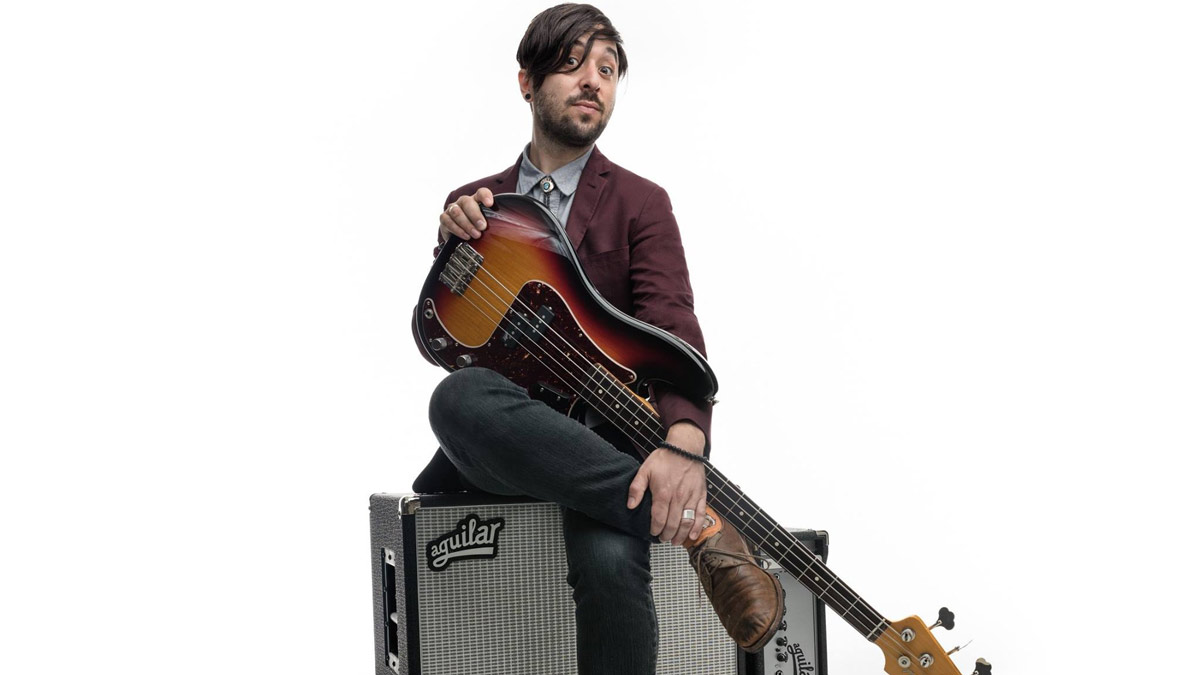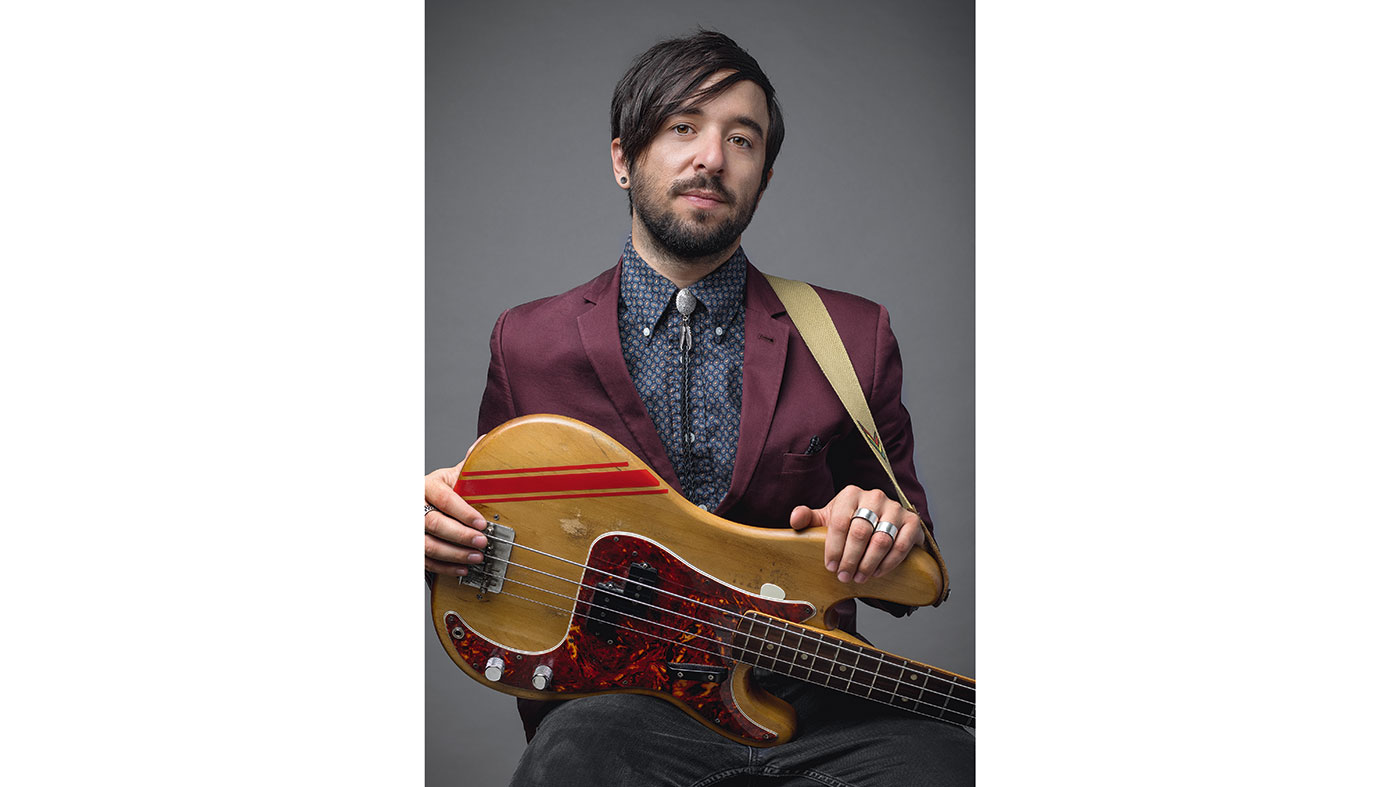Erik Kertes: “Knowledge is power. If you can play all these styles of music, you’re going to work that much more”
We talk to the pop session bassist, who counts Shakira and Michael Bublé among his gigs

Shakira and Michael Bublé are just two of bassist Erik Kertes’ major gigs. We find out how he approaches the big stages...
It’s ages old and often repeated: “How do you get to Carnegie Hall?” asks a New York tourist of a passing gent. “Practice,” the fellow responds. “Practice.” Groan-worthy perhaps, but bassist, songwriter and producer Erik Kertes will tell you it’s the truth.
Charting them out from Shakira's records, note for note, and then playing over them hundreds of times to get them under my finger
Kertes, who plays upright and electric bass with Shakira, Michael Bublé, and a host of others, knows the importance of practice. It began with the piano lessons he hated as a child, continued as he learned to play guitar and bass at Los Angeles County High School For The Arts, and intensified while he was majoring in jazz studies at the University of Southern California. Practice has enabled Kertes to compose string quartets, record film scores, and transcribe without a bass in his hands.
Prior to rehearsals with Shakira, he dedicated three weeks to writing charts. “Not just the songs I knew we were going to do, but the songs I thought we might also do as well,” he says. “Charting them out from her records, note for note, and then playing over them hundreds of times to get them under my fingers.”
Kertes is on the A-list of touring and session players. His discography as a musician and songwriter reads like a who’s who of top-tier artists in pop, rock, country, and jazz. He co-wrote several songs on Buble’s latest Grammy-nominated album, including the title track and hit single, Nobody But Me. He recently wrapped up his second solo EP, Nitwit, on which he plays all the instruments. He’s also looking ahead to spring dates in Asia with Daniel Powter and the June launch of Shakira’s world tour.

Under the influence
He could name “a million” bass players that inspire him, but his primary influences are narrowed to three. “My father was my first influence and still is,” he says. “He plays bass, guitar, piano, violin, and mandolin. He still plays with the rock band that he’s been in for almost 40 years, and in the Pasadena Community Orchestra. Music has always been a huge part of his life, and I think we have mutual admiration.”
“I grew up on The Beatles, and it doesn’t get better than Paul McCartney’s melodic basslines. When I started playing upright, I quickly discovered Ray Brown, who played with Oscar Peterson. I spent my college years transcribing his bass-lines and solos, and it’s the perfect, bluesy, quintessential bass. Paul is cool and polished, Ray has this greasy, groovy thing, and the combination of those is what I try to model myself after.”
Get the MusicRadar Newsletter
Want all the hottest music and gear news, reviews, deals, features and more, direct to your inbox? Sign up here.
Even though Shakira is a pop and Latin gig, the way she started was kind of rock, so it’s cool to play a P-Bass
When you see Kertes onstage with Shakira this summer, he’ll have his main basses, the Moollon P and J, plus a Fender American Series P-Bass, a five-string Yamaha BB, a Gibson 335, a Moog Sub 37 synth bass, an upright, and a cello.
Of the last of these, he says, “I’ve fallen in love with it. It’s like upright bass, but a little bit easier because the spacing is not so huge between notes. It’s been fun learning that instrument.”
“I’m a vintage Fender guy,” he adds. “That’s always been my favourite stuff. Even though Shakira is a pop and Latin gig, the way she started was kind of rock, so it’s cool to play a P-Bass with her because it helps define that underlying element of where she’s come from, and we still do songs from the past where it’s totally appropriate. I only play the five-string bass when I absolutely have to; when there’s a note that’s lower than E, I’ll jump to the five-string. I play the P-Bass for everything else.”
“I’ve always been a fan of the Ampeg SVT. That’s been my go-to amp, but on both of the Shakira and Bublé gigs I’ve been using Aguilar, who I’m endorsed by. They get that SVT sound that I love so much, but they also can do the more modern thing, which is necessary when you’re playing pop music.”
Kertes’s phone keeps ringing because he is well versed in all genres. That, of course, comes back to practice and keeping an open mind.
“The bass is amazing,” he says. “I could be biased, but it’s just hearing what it can do on so many levels. And as we said, knowledge is power. If you can play all these styles of music, you’re going to work that much more. As long as you’re doing the homework, you can tackle as much as you want to in this world.”


“Every note counts and fits perfectly”: Kirk Hammett names his best Metallica solo – and no, it’s not One or Master Of Puppets
“I can write anything... Just tell me what you want. You want death metal in C? Okay, here it is. A little country and western? Reggae, blues, whatever”: Yngwie Malmsteen on classical epiphanies, modern art and why he embraces the cliff edge









